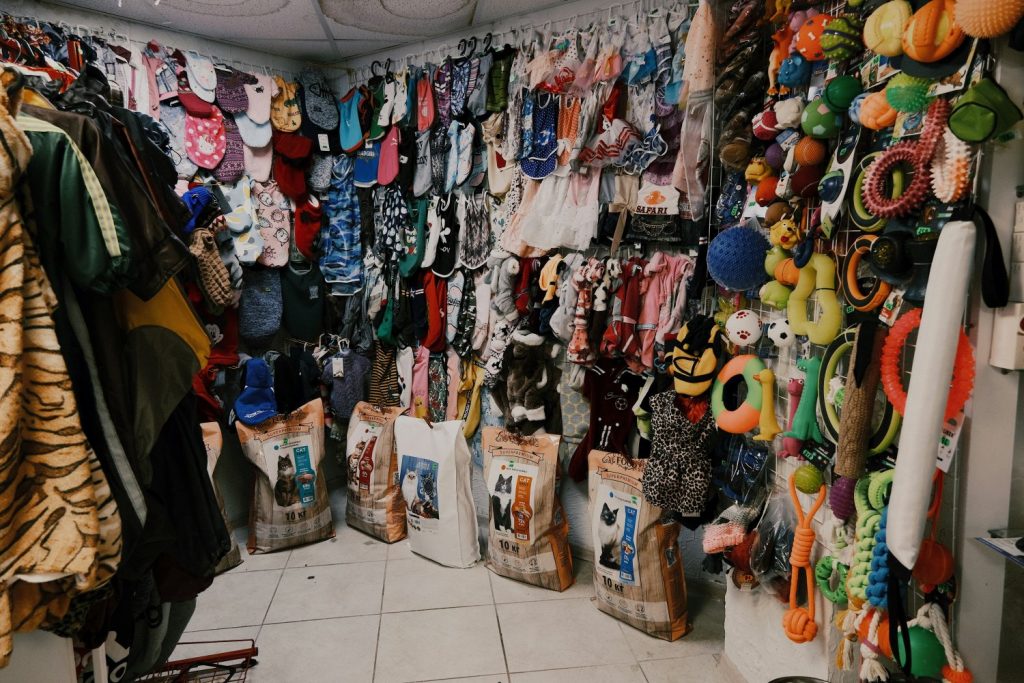11 years ago we were adopted by Thanasis, a stray, mostly griffon and a little Yorkshire. Since then we are not a family of three, but a family of four. Sociologists call it the “humanization of pets,” a trend that is expanding worldwide, creating a booming industry worth half a trillion dollars worldwide. dollars in 2030 – up from $320 billion today – according to Bloomberg Intelligence research.
The impressive growth rate presented by the global market of products and services around companion animals also touches our country, especially after the health crisis of COVD-19, as the number of pet adoptions of all kinds increased. The Greek pet care market is estimated to exceed 500 million euroswith growth rates of approx 5%-7% annually, while it has begun to attract serious investment interest.
And this is because Thanasis, like the 2.744 million tamed animals that live with their “parents” in Greece, according to the updated – within June 2024 – research by FEDIAF, the organization that represents the European pet food industry, have not need only food and water. Treats and snacks, food bowls, bedding, leashes and collars, crates, toys, veterinary care, training, grooming and grooming products and services, hygiene products, hospitality services, even insurance coverage, are some of the “expenses” they incur Greek animal lovers, at a time when the prices of pet products have recorded an increase of 15% in the last two years alone, from September 2022 to September 2024.
Dogs and cats
It should be noted that in the eternal confrontation between dogs and cats in our country, contrary to what happens all over Europe, dogs win (655,000 based on the data of 2022), with cats following closely behind (606,000). Based on FEDIAF data, 14% of domestic households have at least one dog and 13% have at least one cat.
Greeks also have a great love for pets with wings, owning 971,000 birds, while 90,000 are aquarium fish, 416,000 small rodent mammals (rabbits, hamsters, etc.) and 6,000 the most “exotic” animals, e.g. turtles, snakes, iguanas, geckos, tarantulas, scorpions, etc.
The latter, like birds and aquarium fish, belong to observation animals and not to the category of companion animals, which are those that “create” the big turnovers in food, accessories, health services.
Although the population of companion animals in our country sounds large and continues to grow, it remains smaller compared to other European countries. For example, in Portugal 39% of households have a dog, while in Hungary this percentage rises to 50%.
In any case, however, the pet care market in Greece is expected to continue its upward trend in the coming years. The increase in disposable incomes, the trend for personalized animal care and the pet friendly attitude that is developing e.g. in catering, transport and tourist accommodation, will boost demand. At the same time, the integration of new technologies, such as smart collars and IoT solutions for pets, will open new avenues for the development of the sector.
Already the turnover of the dog and cat food market on supermarket shelves is enviable, as it reached a total of 131.2 million euros in 2023 based on the research company Circana, while according to the independent data collection platform Statista, it is estimated that the value of the pet food market in Greece will reach 287 million euros this year. The market, in fact, is expected to show an annual growth rate of 2.42% until 2029.
The sales
The sales channel that dominates the Greek pet food market with a 54%-55% share is the specialized retail trade (Pet Shops), a percentage which also includes veterinarians who sell products (Pet Vet).
About 40%-41% of consumers prefer to buy pet products from supermarkets, while 4%-5% of sales are made through e-commerce, as in addition to the variety there is a personalized treatment of the nutritional needs of pets.
«Specialty food products, including those focused on specific health benefits, continue to be very popular and show strong growth.” highlighted by industry players. However, at the same time, the turnover of cheaper private label products is also rising, something that has been observed in the last two years of global inflation.
Multinational pet food companies such as Mars (Pedigree and Whiskas), Nestle (Frieskies, Purina) and Royal Canin SAS maintain the lead in branded products.

Investment barrage
The growing importance that Greeks attach to the care of pets is also reflected in the investment mobility presented by this market.
Investments from SMERemediumCap’s investment fund Nikos Karamouzis in the field of medical care of companion animals is a representative example.
During the last 24 months, Four Feet Ventures has invested over 15 million euros creating a nationwide network of pet clinics, the largest currently operating in Greece. SMERemediumCap’s entry into the sector was made with the strategic investment in the Plakentia Veterinary Clinic in Agia Paraskevi in Athens, while it has expanded to Thessaloniki. Within the first quarter of 2025, a new veterinary clinic of the group is expected to operate in Alimos.
SMERC’s investments in the veterinary sector include a total of six clinics and hospitals, as well as a veterinary laboratory. It was preceded by the acquisition of the Pet City chain by BC Partners. Pet City, with a turnover of 53.67 million euros in 2023, currently maintains the largest pet retail network in Greece.
At the same time, MEGA SA, a leading company in personal hygiene products, announced its entry into the category of pet care products, launching a range of products.
#Golden #businesses #million #care #companion #animals

